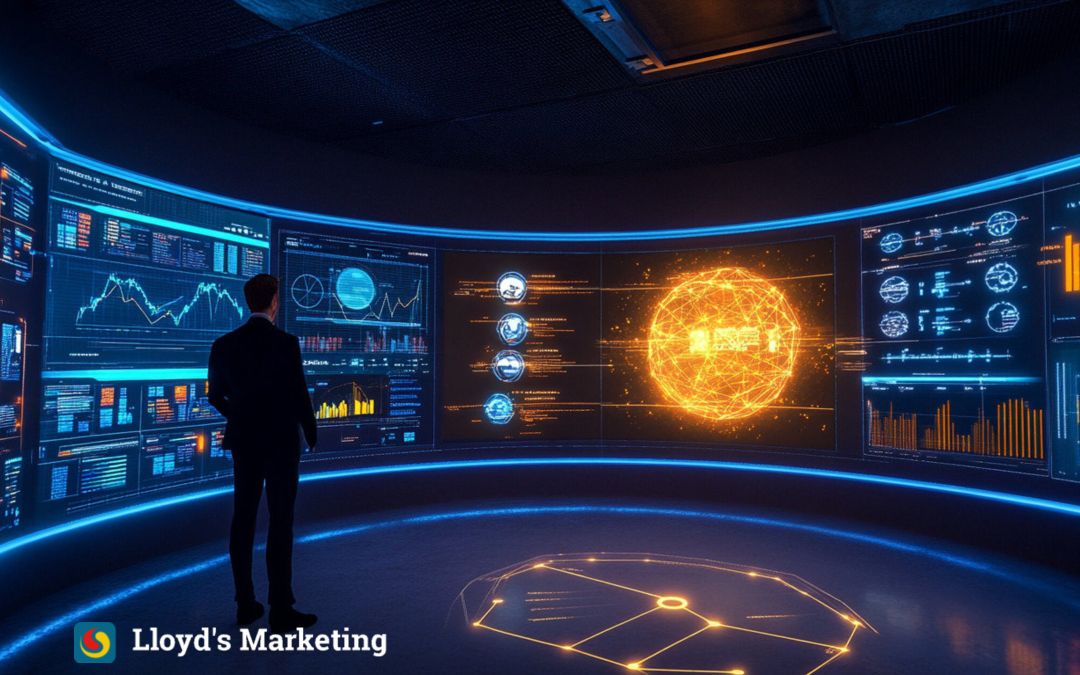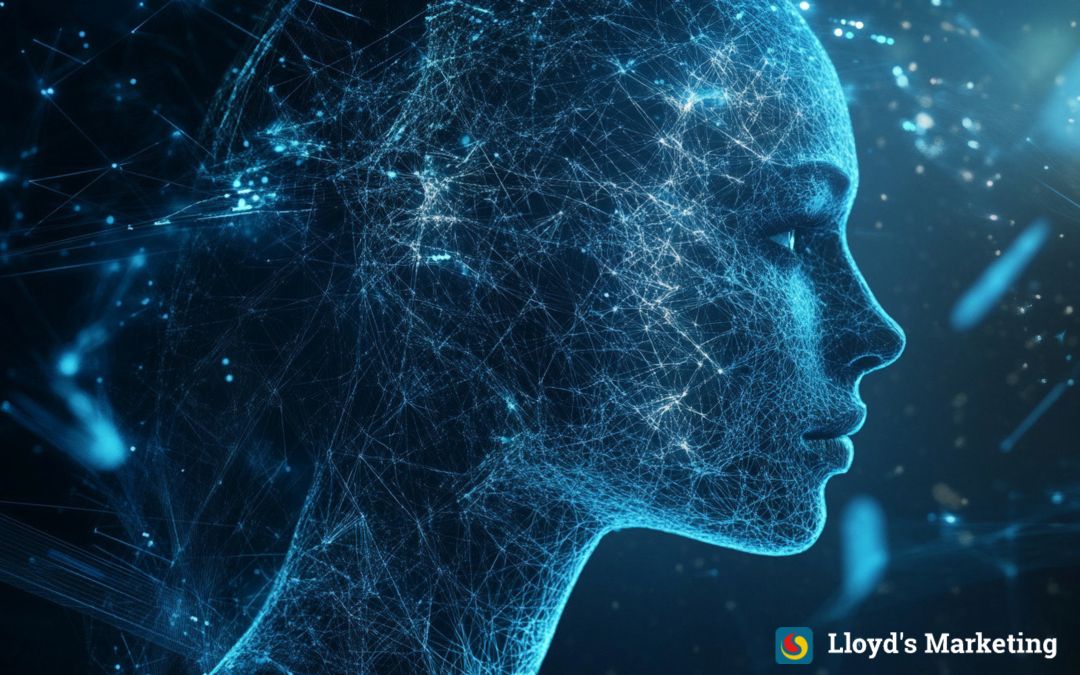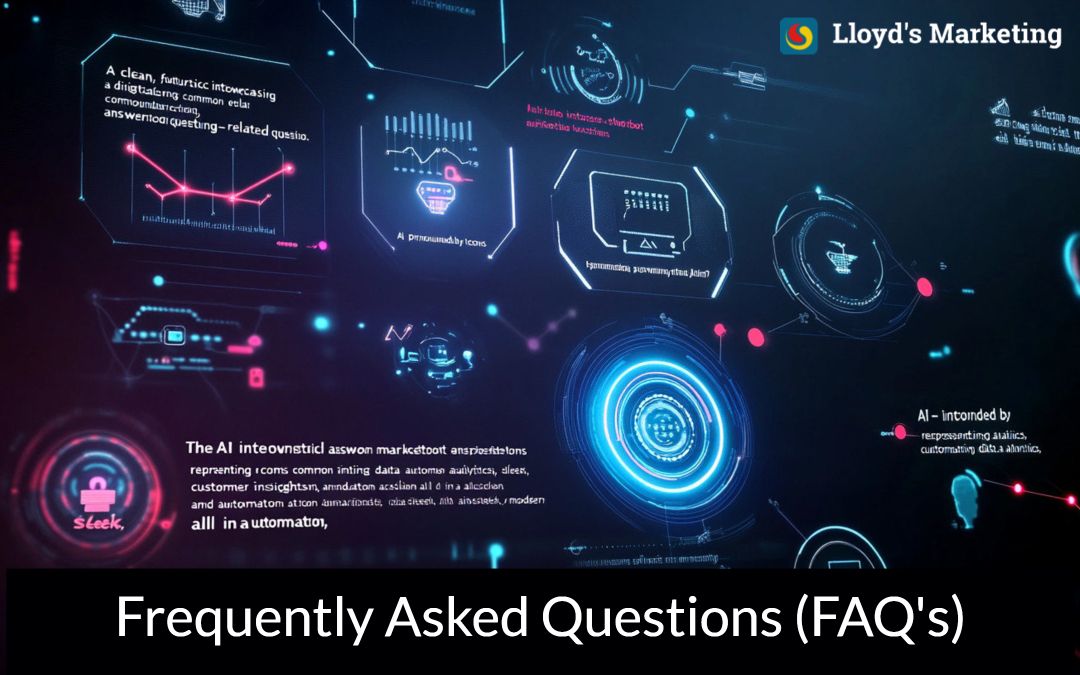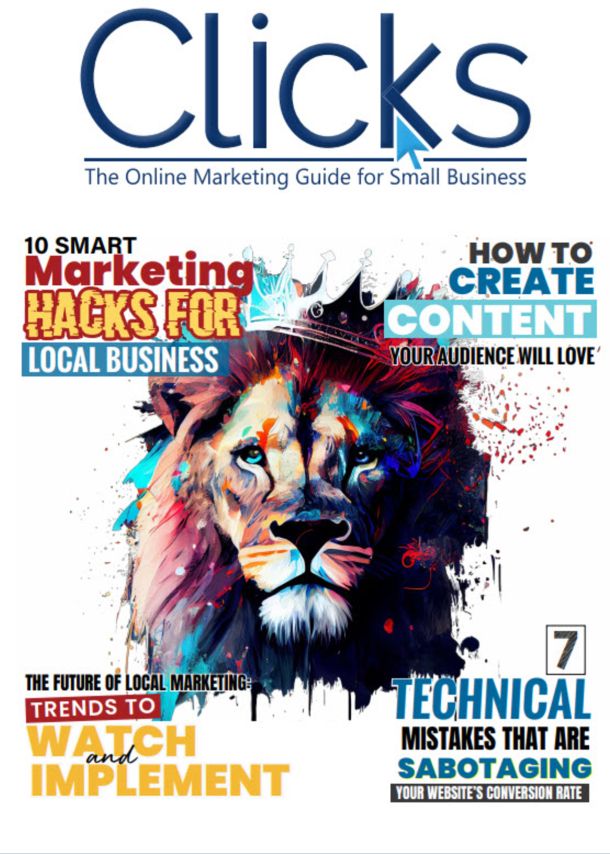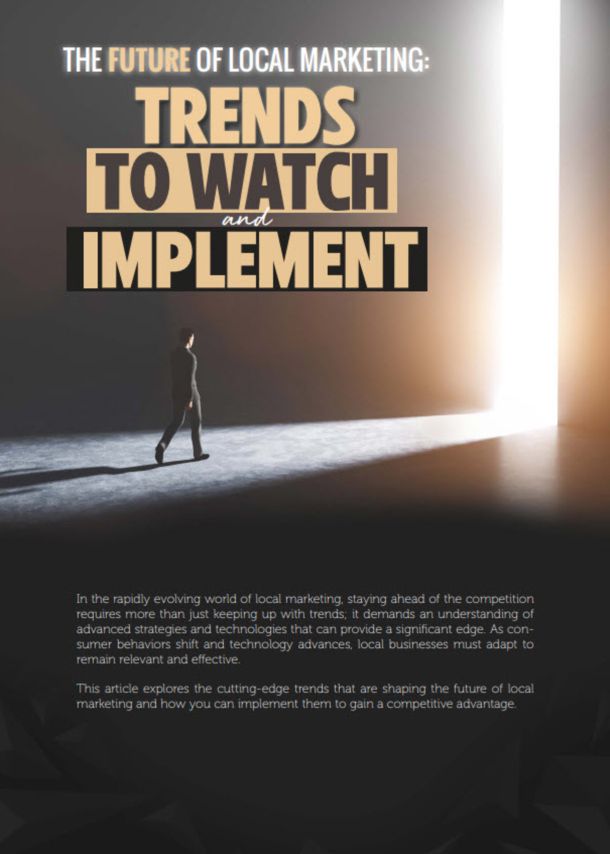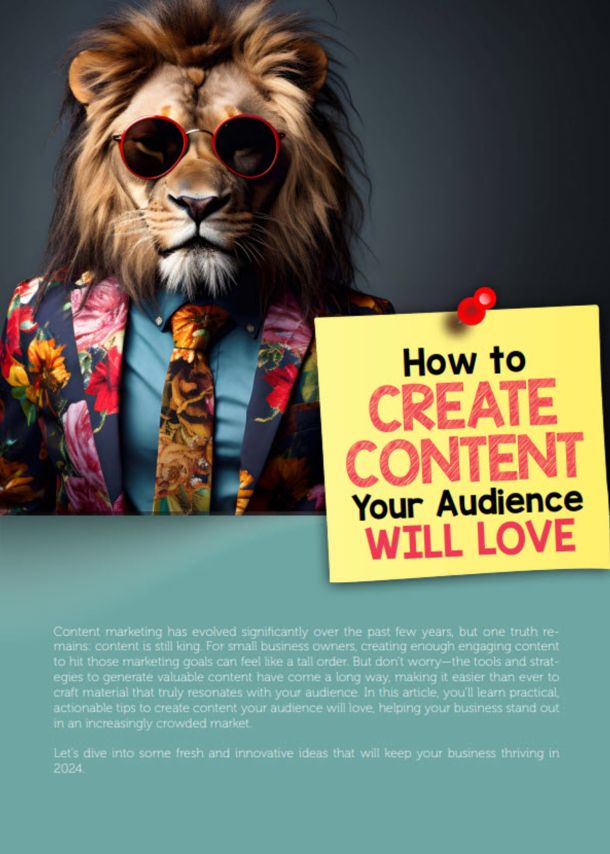Table of Contents
AI in Marketing
Artificial Intelligence (AI) has revolutionised industries from healthcare to finance, and now, marketing is at the forefront of this transformation. With its ability to process vast amounts of data and adapt in real time, AI is becoming indispensable to marketers who strive to deliver personalised experiences, predict consumer behaviours, and automate repetitive tasks. This article will explore how AI is reshaping marketing, making campaigns more efficient, relevant, and data-driven than ever before.
Personalised Advertising: A Game Changer with AI
One of the most significant ways AI transforms marketing is through personalised advertising. AI algorithms analyse data on consumer behaviour, creating tailored ads that are more likely to resonate with individual consumers. This means that marketers can deliver targeted messages to specific audiences, significantly increasing the effectiveness of their campaigns.
Real-World Examples:
Giants like Amazon and Netflix exemplify AI’s impact on personalised advertising. Amazon’s product recommendation engine uses AI to suggest products based on previous purchases, browsing history, and even location. Netflix leverages AI to recommend shows and movies based on viewing habits, enhancing user engagement and satisfaction. These highly personalised experiences drive customer loyalty and increase conversion rates.
Predictive Analytics: From Data to Actionable Insights
Another area where AI in marketing is making a significant impact is predictive analytics. By analysing large datasets, AI can identify patterns and predict future trends. This helps marketers make more informed campaign decisions and optimise their return on investment (ROI). With AI-powered predictive analytics, businesses can stay ahead of the curve and make data-driven decisions that drive results.
Real-Life Application:
Predictive analytics helps marketers move from reactive to proactive decision-making. For example, a fashion retailer can use AI to analyse purchasing patterns and predict which styles will be popular next season. With these insights, the retailer can adjust inventory, marketing strategies, and pricing to meet consumer demand.
The Concept of AI in Marketing
Artificial Intelligence (AI) is a rapidly growing field that has the potential to revolutionise marketing. AI refers to the ability of machines to perform tasks that typically require human intelligence, such as learning, reasoning, and problem-solving. In marketing, AI is used to analyse data, automate processes, and personalise customer experiences.
Predictive Analytics:
Predictive analytics involves using historical data to predict future events. By analysing customer data, AI can identify patterns and trends that can be used to predict future behaviour. This helps marketers target campaigns more effectively and improve their return on investment.
Chatbots and AI in Marketing:
Another way AI is being used is through AI chatbots. Chatbots simulate human conversation, answering queries, providing product recommendations, and making sales. Using AI, chatbots can learn from customer interactions and improve responses, enabling businesses to offer 24/7 customer support.
AI-Driven Customer Insights: Unlocking a Deeper Understanding
AI is revolutionising the future of marketing by providing businesses unprecedented insights about their customers. AI-driven customer insights enable companies to analyse vast amounts of data better to understand customer preferences, behaviours, and needs. Here are three key areas where AI is driving customer insights:
1. Predictive Analytics:
Using machine learning algorithms, businesses can predict which customers are most likely to purchase, which products will be popular, and which campaigns will succeed. By leveraging predictive analytics, companies can allocate resources more effectively and create successful marketing campaigns.
2. Customer Segmentation:
By analysing large datasets, businesses can create more accurate and detailed customer segments with AI. This allows marketers to tailor messages to specific groups of customers, increasing the overall effectiveness of their campaigns.
3. Personalised Recommendations:
AI enables companies to offer personalised product recommendations by analysing past behaviours and preferences. For example, Spotify uses AI to generate personalised playlists like “Discover Weekly,” which recommends new songs based on users’ listening habits.
Automation and Efficiency in Marketing
AI has revolutionised marketing through automation, making it more efficient and effective. AI-powered automation tools allow marketers to automate repetitive tasks, freeing time for more strategic activities.
Programmatic Advertising:
One prominent example of AI in marketing is programmatic advertising. Programmatic advertising uses AI to automate the buying and selling of ad space in real-time, ensuring that suitable ads reach the right audiences at the right time. This increases efficiency and enhances targeted advertising efforts.
AI Chatbots and Virtual Assistants:
AI-powered chatbots and virtual assistants have changed how companies engage with customers. They provide instant responses personalised recommendations, and can even assist with completing transactions. This automation improves customer satisfaction and reduces the workload of customer service teams.
Content Creation and Curation: Optimised for Scale and Relevance
AI technology is transforming how marketing content is created and curated. With the help of AI, marketers can now generate and optimise content at scale, ensuring it reaches the intended target audience.
AI-Generated Content:
AI-generated content is becoming increasingly popular in marketing. Using natural language processing (NLP), AI can create high-quality blog posts, social media updates, and product descriptions in seconds. One significant advantage of AI-generated content is that it can be tailored to individual readers, increasing engagement rates and conversions.
Dynamic Content Optimisation:
AI-powered dynamic content optimisation uses real-time data to adjust content based on user behaviour. For example, AI can display relevant product recommendations or special offers to users browsing a website based on their past behaviour, location, or device type.
Data Privacy and Ethical Considerations:
Data privacy and ethical considerations have become critical as AI in marketing evolves. Businesses must ensure they collect and use data responsibly while protecting customer privacy.
Data Security:
With the vast amounts of data collected, companies must prioritise data security by implementing strong encryption and regularly monitoring systems for potential vulnerabilities.
Ethical Use of AI:
Ethical concerns must also be addressed. AI should not be used to discriminate against specific groups or manipulate consumer behaviour. Transparency in how AI is used, alongside ensuring fairness in AI algorithms, is essential to building trust with consumers.
The Future of AI in Marketing: Trends to Watch
As AI technology evolves, it will create new opportunities and challenges for marketers. Here are some trends and challenges to consider:
Personalisation:
Personalisation remains one of the top trends in AI-driven marketing. Machine learning algorithms help businesses deliver targeted content and offers, improving engagement and loyalty.
AI Chatbots:
Another major trend is the rise of AI chatbots. These bots provide real-time customer support and personalised recommendations, automating customer interactions while improving the overall experience.
Predictive Analytics:
AI-powered predictive analytics will continue to grow in importance. Marketers can use it to predict customer behaviour and optimise campaigns for better results.
Challenges:
– Data Privacy: As more customer data is collected, the risk of breaches increases, making implementing robust data privacy policies crucial.
– Bias in AI: Businesses must ensure their AI systems are trained on diverse, unbiased data to avoid biased outcomes.
– Implementation Costs: AI technology requires investment in infrastructure and talent, and businesses must weigh the benefits against the costs.
Conclusion: Embrace AI for Marketing Success
AI is no longer a futuristic concept; it’s a present-day reality shaping the future of marketing. By embracing AI-powered marketing tools, businesses can create personalised experiences, optimise campaigns through predictive analytics, and automate time-consuming processes, all while addressing ethical concerns around data privacy and bias. Now is the time for brands to explore AI-driven marketing strategies to stay ahead of the competition.
How is AI used in marketing? 🤖📊
AI is transforming marketing by enabling businesses to automate processes, analyse vast amounts of data, and deliver personalised experiences to customers. From personalised advertising and predictive analytics to AI-powered chatbots and content generation, AI helps marketers make data-driven decisions and improve campaign effectiveness.
What are the benefits of using AI in marketing? 🌟
AI in marketing offers several key benefits, including:
– Personalisation: AI allows businesses to deliver tailored messages and product recommendations based on customer preferences. 🎯
– Automation: Routine tasks such as customer support, content creation, and ad buying can be automated, increasing efficiency. ⚙️
– Predictive Insights: AI can analyse data to predict future trends and behaviours, helping businesses optimise their strategies. 🔮
– Enhanced Customer Engagement: AI chatbots and virtual assistants offer 24/7 support, improving customer satisfaction and retention. 💬
Can AI help with content creation? ✍️
AI can generate high-quality content like blog posts, social media updates, and product descriptions. AI tools leverage natural language processing (NLP) to produce engaging content tailored to individual reader preferences. This saves time and increases the likelihood of customer engagement and conversions. 📈
What is predictive analytics in marketing, and how does it work? 📊🔍
Predictive analytics uses AI algorithms to analyse historical data and predict future outcomes. In marketing, it can help predict customer behaviour, identify trends, and determine which campaigns or products are likely to be successful. This enables businesses to make data-driven decisions and allocate resources more efficiently.
How do AI chatbots improve customer experience? 💬🤖
AI chatbots simulate human conversation and provide instant responses to customer queries. They can handle various tasks, such as answering questions, offering product recommendations, and completing sales. Chatbots are available 24/7, ensuring consistent and timely support, which enhances customer satisfaction and loyalty. 🕒😊
Is using AI in marketing ethical? ⚖️
AI can be used ethically in marketing, but businesses must ensure transparency about how AI is used and customer data is collected. Ensuring fairness, preventing bias in AI systems, and respecting data privacy are critical to building customer trust. Companies must also comply with regulations like GDPR to protect user data. 🔐
What is programmatic advertising, and how does AI improve it? 📈💻
Programmatic advertising is the real-time automated buying and selling of ad space. AI improves programmatic advertising by using algorithms to target specific audiences more accurately based on behaviour, demographics, and interests. This results in more efficient ad spending and better campaign performance. 🎯
What are the future trends in AI for marketing? 🔮🚀
Some key trends to watch include:
– Advanced Personalisation: AI will continue to enhance personalisation, delivering highly tailored experiences to individual customers. 🎯
– AI-Powered Chatbots: AI chatbots will become even more sophisticated, providing better customer service and personalisation. 🤖💬
– Predictive Analytics: AI will play a bigger role in predictive analytics, helping marketers more accurately anticipate trends and customer behaviour. 📊🔮
– Visual Recognition: AI-driven visual recognition technology will enable consumers to search for products using images, transforming the shopping experience. 🛍️🖼️
Some Of My Other Website AI Posts You Can Quickly Profit From:
How AI is Revolutionising Marketing
AI Marketing for Small Business Explained: Myths and Facts
The Transformative Journey of ChatGPT & AI in Our Lives & Businesses.
Download Your Free Monthly Small Business Digital Marketing Magazine
Stay ahead of your competitors by staying current with the latest small business marketing trends and proven marketing strategies and tactics.
Click Here to download September 2024. No sign-up is required, and it will open in a new browser window.
Page Sponsors
BrightLocal gives you the tools to rank higher, improve your reputation, and generate more traffic and leads from local searches. Click here for your free trial.
Affiliate Links
Some of the hyperlinks in this post are affiliate links. This means if you click on them and then purchase the product/service offered by the website, I will receive a sales commission.
Rest assured, when you purchase through my affiliate link, you’re paying the same amount as if you had gone directly to the website. It’s a fair system that benefits us both.
These commissions help me finance the free resources provided on this website and my social media profiles.

